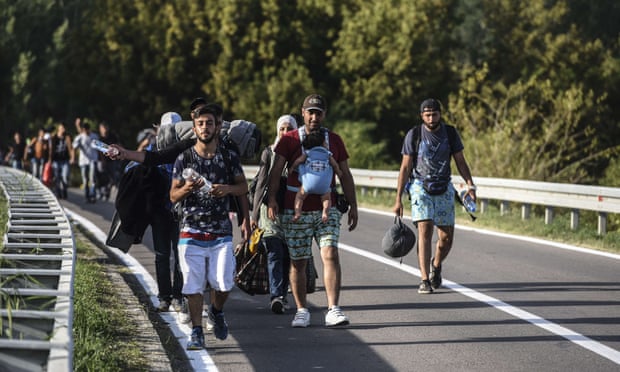by Shelby Vcelka
Impunity Watch Desk Reporter, Europe
ZAGREB, Croatia–
Thursday, Croatia closed 7 of its 8 borders to Serbia after more than 10,000 refugees attempted to cross over the weekend. The country has been overwhelmed by the arrival of refugees, failing to provide adequate transportation to migrants hoping to cross into Slovenia. Initially, Prime Minister Zoran Milanović said that the country was willing and able to help refugees reach northern Europe by providing safe passage. However, it quickly became clear to the Croatian government that they had underestimated the challenge they agreed to take on.

The shift of the flow of refugees through the Balkans has changed the dynamic of the refugee crisis in Europe, as it threatens to reopen old wounds and international mistrust. The migrants are traveling through the countries that once made up the country of Yugoslavia, which still harbors racial tensions in the region. These smaller countries, such as Croatia and Serbia, have small economies and weak welfare states, meaning they are more susceptible to reopening tensions. Those additional factors are making it more difficult for the Balkan region to respond to a crisis that wealthier countries have struggled to tackle.
The Balkan nations were initially very welcoming to the refugees, as they had received aid when the Yugoslav wars were occurring. However, these countries have struggled with building and maintaining a strong economy, leaving a majority of their populations in poverty. The governments of Croatia and other Balkans nations, upon realizing how many refugees wished to travel through, became reluctant to have an open border policy. “Countries across the region are poor, their institutions are not yet developed, and most states can barely deal with the daily problems of government, never mind a migration crisis,” said Sead Numanovic, from Avaz, a reputable Bosnian newspaper.
The situation in the Balkans is already so tense, Germany has had to declare Bosnia, Croatia, Serbia and Albania “safe nations” so refugees from those countries can be automatically denied. In addition to the hundreds of thousands of refugees coming from Syria, Iran, Afghanistan, and Iraq, many others are arriving in Germany from Serbia, Albania and Kosovo.
For more information, please see–
BBC–Migrant crisis: Croatia closes border crossings with Serbia— 18 September 2015
Budapest Business Journal–Hungary extends state of emergency as Croatia shuts borders— 18 September 2015
The Guardian–More than 2,000 refugees stranded at Croatian border town— 18 September 2015
New York Times–17,000 Migrants Stranded in Croatia by Border Crackdown— 18 September 2015
TIME–Croatia Closes Its Border Crossings With Serbia as Thousands of Refugees Enter the Country— 18 September 2015